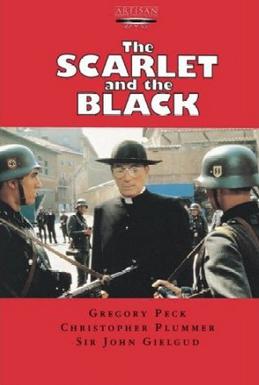The Inspiration of St Matthew, Caravaggio [Web Gallery of Art]
Readings
(New American Bible:
Philippines, USA)
Readings
(Jerusalem Bible: Australia,
England & Wales, India [optional], Ireland, New Zealand, Pakistan,
Scotland, South Africa)
Gospel Matthew 21:28-32 (New Revised Standard Version, Anglicised CatholicEdition)
Jesus said to the chief priests and elders of the
people:
‘What do you think? A man had two sons; he went
to the first and said, “Son, go and work in the vineyard today.” He answered,
“I will not”; but later he changed his mind and went. The father went to the second and said the same;
and he answered, “I go, sir”; but he did not go. Which of the two did the will of his father?’ They
said, ‘The first.’ Jesus said to them, ‘Truly I tell you, the tax-collectors
and the prostitutes are going into the kingdom of God ahead of you. For John came to you in the way of righteousness and
you did not believe him, but the tax-collectors and the prostitutes believed
him; and even after you saw it, you did not change your minds and believe him.’
The above scene, at the Coliseum in
Rome, comes shortly before the end of the 1983 made-for-TV move, The Scarlet and the Black, which tells the
true World War II story of Vatican-based Irish priest Monsignor Hugh
O'Flaherty, known as 'The Vatican Pimpernel' and played here by Gregory Peck,
and Colonel Herbert Kappler, head of the Gestapo in Rome during the Nazi
occupation from September 1943 till June 1944, played by Christopher Plummer.
The priest has managed to save the lives of many Allied soldiers and others,
getting under the skin of Kappler.
When the German knows that the Allies are about to liberate Rome he sends for the Irishman at night, guaranteeing his safety. The Wikipedia article on the movie tells us what happens after their exchange of 'pleasantries' above.
Colonel Kappler worries for his family's safety
from vengeful partisans, and, in a one-to-one meeting with O'Flaherty, asks him
to save his family, appealing to the same values that motivated O'Flaherty to
save so many others. The Monsignor, however, refuses, disbelieving that after
all the Colonel has done and all the atrocities he is responsible for, he could
expect mercy and forgiveness automatically, simply because he asked for it, and
walks away in disgust . . .
Kappler is captured in 1945 and questioned by the
Allies. In the course of his interrogation, he is informed that his wife and
children were smuggled out of Italy and escaped unharmed into Switzerland. Upon
being asked who helped them, Kappler realizes who it must have been, but
responds simply that he does not know.
At the very end we read on the screen: After the liberation Monsignor Hugh O'Flaherty was honored by Italy, Canada and Australia, given the U.S. Medal of Freedom and made a Commander of the British Empire.
Herbert Kappler was sentenced to life imprisonment for war crimes. In the long years that followed in his Italian prison, Kappler had only one visitor. Every month, year in and year out, O'Flaherty came to see him.
In 1959 the former head of the dreaded Gestapo in Rome was [received] into the Catholic faith at the hand of the Irish priest.
At the very end we read on the screen: After the liberation Monsignor Hugh O'Flaherty was honored by Italy, Canada and Australia, given the U.S. Medal of Freedom and made a Commander of the British Empire.
Herbert Kappler was sentenced to life imprisonment for war crimes. In the long years that followed in his Italian prison, Kappler had only one visitor. Every month, year in and year out, O'Flaherty came to see him.
In 1959 the former head of the dreaded Gestapo in Rome was [received] into the Catholic faith at the hand of the Irish priest.
[You can view the whole scene between
the Colonel Kappler and Monsignor O'Flaherty on Gloria TV here,
starting at 06.10. The whole movie is available on Gloria TV here.]
St Paul tells us in the Second
Reading, Let each of you look not to your own interests, but to the
interests of others. The priest has been putting his life at risk time and
again to save the lives of others, while the soldier has been taking the lives
of others. But now Kappler looks beyond himself and wants to save the lives of
his wife and two children.
St Paul tells us that Christ
Jesus emptied himself, taking the form of a slave. Kappler in a
real sense can be said to have emptied himself when he
compares himself to a beggar and lame dog as he requests the priest to help his
wife and children get to safety. Saving others is all part of your
faith, he says to the priest. Brotherly love and forgiveness -
that's the other half of what you believe.
When the priest storms off with I'll
see you in hell first! Kappler says to himself, You're no
different from anyone else. Your talk means nothing. Charity, forgiveness,
mercy - it's all lies.
But when Kappler is being
interrogated by officials of the Allies [here from
1:30 to 3:06] we discover that the Irish priest too had emptied
himself by overcoming his anger at the request to help his enemy's
family to escape, and by enabling them to get to Switzerland.
Very few of us will have to face the
kind of danger that Monsignor O'Flaherty faced. But every day we have to make
choices, often between good and bad. The choice to forgive his enemy that the
Irish priest made is the kind of choice that faces all of us, even if the
perceived crime or 'crime' of our enemy or 'enemy' is rarely on the scale of
those of Colonel Kappler. But the latter, in his need, felt the stirrings of
hope in his heart, the stirrings of faith in a merciful God, when he approached
his nemesis with his plea.
Those stirrings were dashed by the
priest's angry refusal. Charity, forgiveness, mercy - it's all lies.
But those stirrings were raised again when he learned that his wife and
children were safe and knew that only one person could have seen to that. Then
he knew he was wrong when he said, Charity, forgiveness, mercy - it's
all lies. Now he knew it was all true.
I don't know if the Irish priest was familiar with these words of St Caesarius of Arles (c.470 - 27 August 542): Whenever you love brothers or sisters you love friends, for they are already with you, joined to you in Catholic unity. If they live virtuously you love them as people who have been changed from enemies into brothers and sisters. But suppose you love people who do not yet believe in Christ, or if they do, yet believe as the devil believes - they believe in Christ but still do not love him. You must love just the same, you must love even people like that, you must love them as brothers and sisters. They are not such yet, but you must love them so that they become such through your kindness. All our love, then, must be fraternal.
I don't know if the Irish priest was familiar with these words of St Caesarius of Arles (c.470 - 27 August 542): Whenever you love brothers or sisters you love friends, for they are already with you, joined to you in Catholic unity. If they live virtuously you love them as people who have been changed from enemies into brothers and sisters. But suppose you love people who do not yet believe in Christ, or if they do, yet believe as the devil believes - they believe in Christ but still do not love him. You must love just the same, you must love even people like that, you must love them as brothers and sisters. They are not such yet, but you must love them so that they become such through your kindness. All our love, then, must be fraternal.
'Son, go and work in the vineyard
today.’ He answered, ‘I will not’; but later he changed his mind and went.
[You can read a fine article by
William Doino Jr published in First
Things, November 2013: Hugh O'Flaherty, Ireland's Shining Priest.]
Antiphona ad communionem
Communion Antiphon Cf Ps 118
[119]:49-50
Memento verbi tui servo tuo, Domine,
Remember your word to your servant, O
Lord,
in quo mihi spem dedisti;
by which you have given me hope.
haec me consolata est in humilitate
mea.
This is my comfort when I am brought
low.











